Institutional Context
Summary
Our University is a major player globally with presence in China, Malawi and online; and a key anchor institution for the Liverpool City Region [LCR].
We are an internationally renowned Russell Group University and member of the N8 Research Partnership of northern research-intensive Universities.
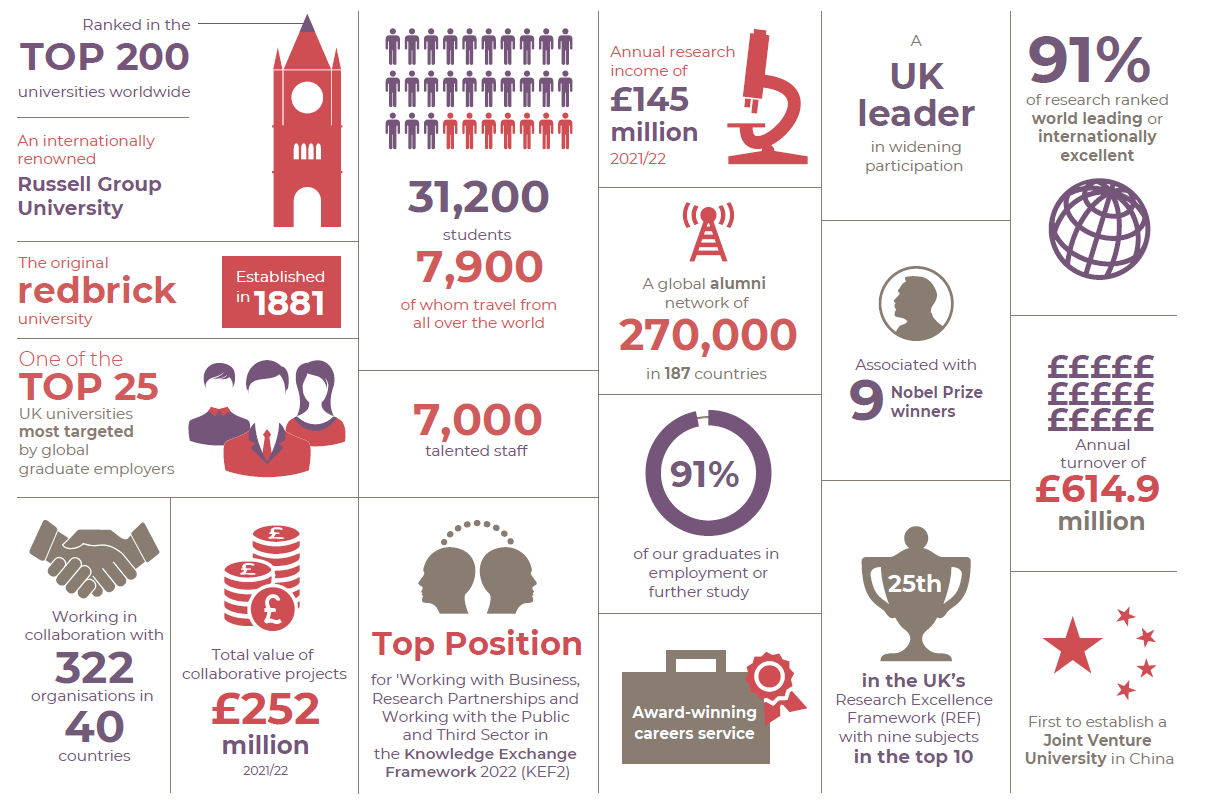
Figure 1: University of Liverpool key facts and figures
Our main areas of distinctive research and knowledge exchange strength include:
Advanced Materials, underpinned by our Materials Innovation Factory and long-standing partnership with Unilever;
Infectious Diseases including our response to COVID-19 working with local NHS partners and the opening of The Pandemic Institute;
Digital underpinned by world class facilities and expertise in our Virtual Engineering Centre and Digital Innovation Facility.
Institutional context
Founded in 1881, with the mission statement “For advancement and ennoblement of life”, our University creates solutions to improve health, create wealth and ensure social justice.
Our approach focusses on the following strategic priorities, supported by HEIF, institutional funding, and other leveraged resources.
1. Focussing intensive activities in areas of distinctive research strength. Exemplars include:
Advanced materials
£8.8M EPSRC prosperity partnership awarded in 2021, with Unilever and the University of Oxford, to develop the next-generation of sustainable materials for consumer products.
National Biofilms Innovation Centre brings together 250+ UK research and industry partners, and secured a further £23.4M in 2021 to drive the translation of biofilm research into innovative solutions for addressing major global challenges.
Infectious diseases
COVID-19 response and recovery: collaborating with a wide range of academic, NHS, civic, and industry partners on projects such as the COVID SMART testing pilot, Infection Innovation Consortium [iiCON], and AGILE Coronavirus Drug Testing initiative, which all played a pivotal role in combatting the virus and in finding solutions to the adverse effects of the pandemic.
The Pandemic Institute opened in 2021 following a £10M philanthropic donation from Innova Medical Group. TPI works in partnership with civic and national organisations to accelerate the response to current and future pandemics.
Digital
Virtual Engineering Centre [VEC] provides digitalisation support to SMEs and large corporations across a range of sectors. Following the success of LCR4.0, the VEC led three further programmes totalling £14.6M, to help businesses boost their productivity and gain competitive edge.
£12.7M Digital Innovation Facility [DIF] launched May 2022, provides companies with access to state-of-the-art facilities, expertise and support so they can benefit from exciting advances in emerging digital technologies and apply them to real-world industrial challenges.
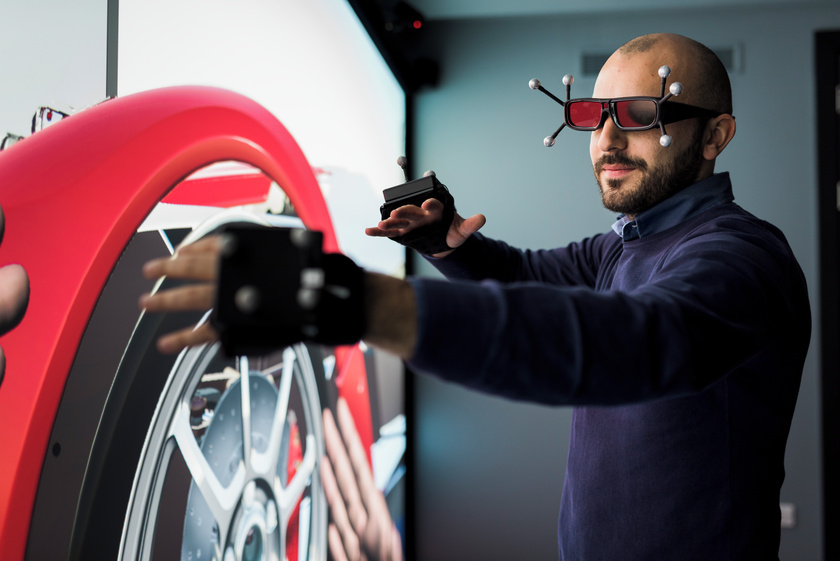
Figure 2: DIF Mixed Reality Laboratory
2. Creating a broad base of knowledge exchange skills - Our flagship annual ‘Making an Impact [MAI]’ programme continues to successfully develop skills and raise the profile of KE. In the past three years we have delivered 200+ sessions to 2000+ individuals, including staff from Sumy State University in Ukraine with whom the University is twinned.
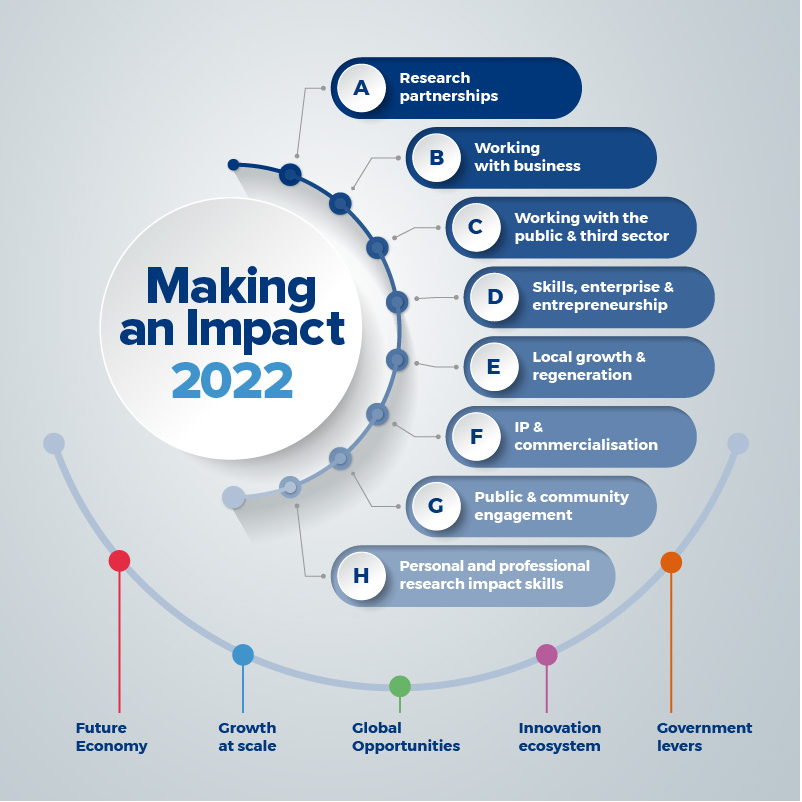
Figure 3: MAI 2022 Framework: mapped to KEF and the innovation themes in Innovate UK's Action Plan for Business Innovation
3. Investing in specialist teams, including commercialisation and consultancy, resulting in:
Significant growth in our IP income, from £2.6M in 2019/20 to £7.3M in 2021/22;
A 21% increase in our annual contract research income, and a 32% increase in our consultancy income between 2019/20 – 2021/22 [Source: HE-BCIS].
4. Catalysing KE through student enterprise with:
An enhanced curricular and extra-curricular offer to support employability and business growth in the region. 830+ participants have benefitted from a range of enterprise challenges, competitions and internship programmes involving 460 employers such as Amazon, Kellogg’s, IBM and the Civil Service.
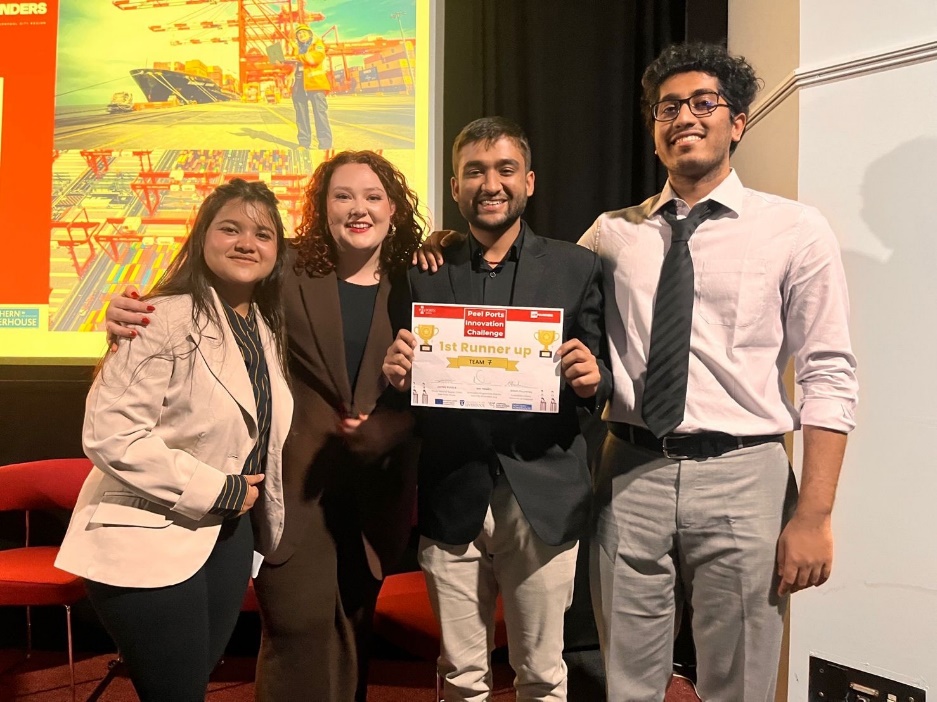
Figure 4: Student team at the Peel Ports Innovation Challenge 2022
The Brett Centre for Entrepreneurship launched in March 2022, engages with academics, students, graduates, business owners and policy makers, to foster an entrepreneurial culture across the LCR and beyond.
For further information, please send queries to jkeyton@liverpool.ac.uk
Local Growth and Regeneration
Summary of approach
The University is an anchor institution for the Liverpool City Region where we play a pivotal role in supporting its performance and prospects.
Founded in 1881 by business and industry leaders with the vision to see higher education and research as essential to the city’s progress, the University has consistently worked with its stakeholders to create solutions to improve health, create wealth and ensure social justice.
The main focus of our strategy is to support the creation of thriving innovation ecosystems by aligning our distinctive research and knowledge exchange strengths in Advanced materials, Infectious diseases, Digital, and Net zero and maritime, to key areas of regional strength and innovation, through strong partnerships and engagement with civic and industry partners.
Aspect 1: Strategy
The University’s world-leading research and knowledge exchange expertise is underpinned by strong partnership working with civic actors and industry collaboration to deliver economic and public benefit, with greatest influence within the Liverpool City Region [LCR] and North West England.
We are a core partner supporting the LCR Combined Authority [LCRCA] to enact their Plan for Prosperity and achieve the goal of Research and Development spending reaching 5% of GVA by 2030.
Working together with the LCRCA and other local partners we identified key areas of regional strength and innovation, as summarised in our Science and Innovation Audit refresh in 2022. This confirmed and further evidenced excellence and innovation progress in the following capability areas:
Materials chemistry;
Infection prevention and control;
AI solutions and emerging technologies;
Net zero and maritime.
Our strategy focusses on supporting these areas by building on the success of our research and innovation assets and distinctive strengths in advanced materials, infectious diseases, digital and net zero and maritime.
In addition, our core strategic priorities include supporting:
Business growth and job creation through joint research, innovation and providing access to talent, facilities and consultancy services in the above key capability areas, and beyond;
New and established spin-outs, especially in key local innovation ecosystem areas;
Public health and wellbeing by working with NHS trusts, local stakeholders and through our key centres such as the Pandemic Institute and Civic Data Cooperative to help address local health issues and inequalities;
Economic prosperity through thought leadership and evidence-based policy making;
Culture and heritage partners across the city region, and making our own cultural assets and resources widely available.
Student enterprise and start-ups.
Beyond the LCR we support the levelling up and place-based agenda of the North of England and play an active part in the N8 research partnership.
We are a key stakeholder in the Knowledge Quarter, Liverpool’s Innovation district, and have strong partnerships with Sci-Tech Daresbury and the STFC Hartree Centre. We participate in civic activity and partnerships with other anchor institutions to align policy to maximise prosperity for people and places. This includes holding positions in the Local Enterprise Partnership, LCR Innovation Board, North West Business Leadership Team, NHS Foundation Trusts and the Combined Authority’s Cultural Partnership.
Aspect 2: Activity
1. Supporting capability areas
Advanced materials
The Materials Innovation Factory [MIF], co-locates University and Unilever staff with cutting-edge equipment, laboratories, and technical expertise. It engages with companies of all sizes helping projects to progress faster and further while setting the standard for industry-academic collaboration. It has leveraged more than £90M of funding and is revolutionising research and development in materials chemistry and enhancing competitive advantage across a range of sectors.
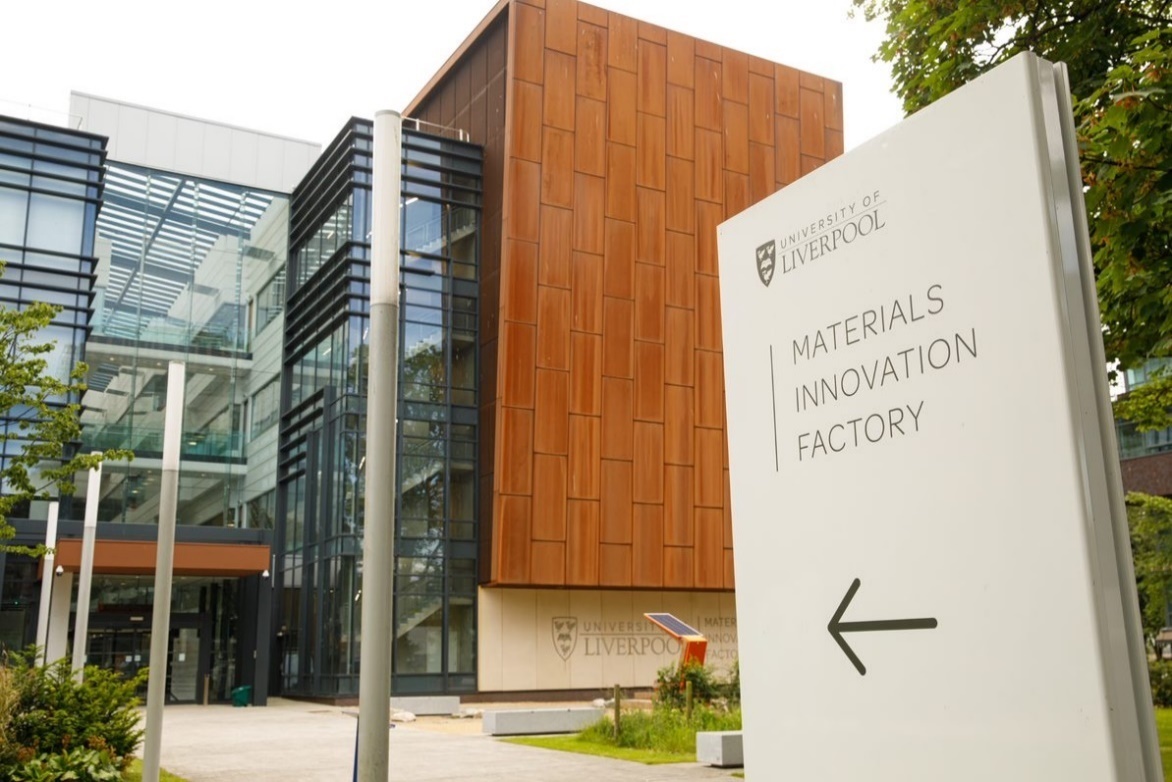
Figure 1:The Materials Innovation Factory [MIF]
Our Open Innovation Hub for Antimicrobial Surfaces and National Biofilms Innovation Centre [NBIC], catalyse rapid knowledge exchange between academic, clinical and industry partners to tackle the economic burden of microbial activity in UK industry, and address the urgent problem of anti-microbial resistance. NBIC has a growing base of 250+ partners, and has secured a further £23.4M to drive the adoption of innovative solutions across industry sectors to address major global challenges.
Infectious diseases
Jointly with Liverpool School of Tropical Medicine, we received £18.6M from UK Research and Innovation’s Strength in Places Fund in 2020 to create the Infection Innovation Consortium [iiCON] comprising eight specialist research platforms for infectious diseases therapeutics in North West England. iiCON brings together industry, academia, and NHS partners with the aim of saving lives by accelerating the discovery and development of new treatments, diagnostics, vaccines, and preventative products for infectious diseases. It supports companies through all stages of the innovation journey, from product concept to adoption.
Building on our infection expertise and experience, The Pandemic Institute [TPI] was launched in 2021 to prepare the world for future pandemics. Founded with a £10M philanthropic donation from Innova Medical Group, TPI is a medical, academic and civic partnership of seven local organisations.
Digital
The Virtual Engineering Centre [VEC] based at Sci-Tech Daresbury, is one of the UK’s leading digital engineering impact centres for industrial and commercial applications. Building on the success of LCR4.0, the VEC continues to provide specialist facilities and support for local SMEs and supply chains through its successor programmes [LCR4.0 START, HOLISTIC, and Cheshire & Warrington 4.0] totalling £14.6M in European Regional Development Funding [ERDF].
Our £12.7M Digital Innovation Facility [DIF], co-funded by LCRCA, provides companies with access to state-of-the-art facilities, expertise and support, so they can benefit from the exciting advances in emerging digital technologies and apply them to real-world industrial challenges.
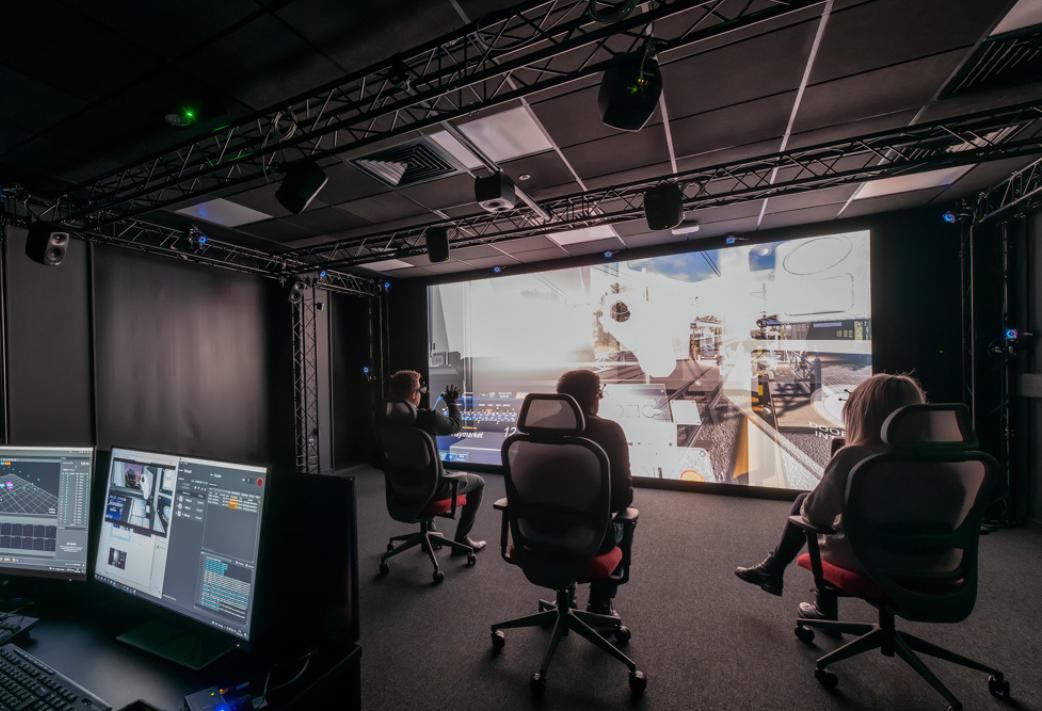
Figure 2: Large-scale Virtual Reality Powerwall in the DIF
Net zero and maritime
The Innovatory is delivering three large-scale ERDF programmes totalling £28M, with investment from LCRCA and regional LEPs. Working with partner institutions, the Innovatory has funded collaborative research and innovation projects with local and regional SMEs, including 24 industry-led doctoral projects, and 89 internships, covering topics such as greener concrete, low carbon housing, nanomaterials for energy reduction and city-based vertical farming.
2. Spin-out creation
Retaining spin-outs in the region has been shown to enrich the local economy, retain graduates as part of skilled workforce and generate jobs for the region. Our IP commercialisation team has driven significant growth in the formation of new spin-out companies, through:
The University’s £2.8M Enterprise Investment Fund [EIF], used to de-risk technology projects in our pipeline and provide start-up capital and cash flow. To date, EIF has leveraged approximately £14M of additional external investment.
Delivering a professional development framework for new academic founders.
Supporting academics to access external accelerator programmes.
3. Health and wellbeing
COVID-19 response: In 2020, researchers in our Institute of Population Health and the Combined Intelligence for Population Health Action [CIPHA] health data platform, partnered with the British Army, Liverpool City Council [LCC] and the NHS, to deliver the world’s first city-wide, COVID-19 rapid testing pilot for people without symptoms.
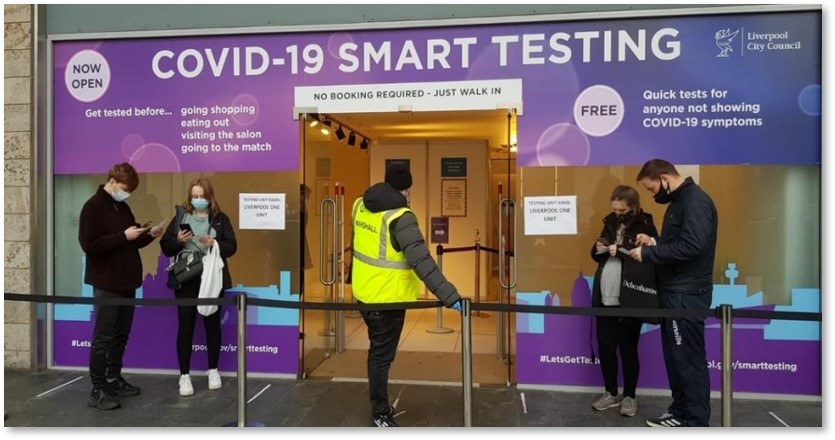
Figure 3: Liverpool COVID-19 SMART testing site. Image courtesy of LCC
This work accelerated the development of the Civic Data Co-operative [CDC], which launched in 2020 with funding from the LCRCA. It is the UK's first project linking the NHS, local authorities [including social care] and citizen-generated data to enable positive health and wellbeing changes across the LCR.
4. Thought leadership and evidence-based policy making
We collaborate on shared priorities to deliver the LCR’s Plan for Prosperity. To create economic prosperity and help reduce economic and social inequality we:
Support ‘place-based levelling-up' through collaboration with public and private sector partners;
Broker expertise and thought leadership in areas of sustainable urban development;
Collaborate with other anchor institutions to deliver social value through procurement, workforce, estates and community wealth building.
The Policy Support Fund from Research England has enabled us to enhance the capacity of University staff to undertake research with policymakers and to better understand and respond to local, regional, national and international public policy issues. In particular the fund has helped expand and strengthen the Heseltine Institute for Public Policy Practice and Place, which brings together researchers and policymakers to resolve policy challenges focused on place-based impact.
The Institute’s series of policy briefings, developed with the LCRCA, is a particularly successful collaboration presenting new policy answers and emergent approaches to economic development and public service innovation to support post-pandemic recovery.
5. Culture and heritage
We support the LCR’s creative and cultural sector through collaborations with cultural partners such as National Museums Liverpool, Tate, Everyman and Playhouse, Liverpool Philharmonic, and FACT, and representation on the LCR’s Music Board and Beatles Legacy Group, which support music heritage and tourism. We also make our cultural assets and resources widely available to the public [see our Public and Community Engagement statement for further details].
6. Student enterprise
Our Careers & Employability Team embed entrepreneurship skills through a range of curricular and extra-curricular programmes and opportunities, such as the ERDF funded LCR Founders programme, with Liverpool John Moores University [LJMU]. This is helping to grow a thriving co-founder ecosystem by matching up student and graduate talent at both organisations to form new business start-ups. 480+ individuals have participated since 2020/21.
The Brett Centre for Entrepreneurship, launched March 2022, is at the core of enterprise education across the University and draws on expertise in our Management School to raise levels of understanding and expertise in entrepreneurship, and instil an entrepreneurial culture across the LCR and beyond.
Aspect 3: Results
Below is a selection of case studies demonstrating the outcomes and impacts of our approach to local growth and regeneration.
1. Supporting capability areas
Advanced Materials
Materials Innovation Factory [MIF]
Unilever supported the set-up of the Centre for Materials Discovery with a £3M investment and were subsequently the key industrial partner for the MIF. Unilever’s Dr Jon Hague, refers to the research collaboration as the key factor in Unilever R&D being located in the Liverpool area.
In 2021 we secured an £8.8M EPSRC Prosperity Partnership with Unilever and the University of Oxford to develop next generation sustainable materials for consumer products, and help the UK achieve Net Zero by 2050.
National Biofilms Innovation Centre [NBIC]
NBIC has a portfolio of 83 proof of concept projects worth over £6.7M, made 226 local, national and global connections as a result of partner searches, and produced 235 peer reviewed publications - helping to place the LCR at the very forefront of breakthrough innovation in a critical and expanding field.
Infectious diseases
CSL Seqirus is one of the largest influenza vaccine companies globally – with a single focus on battling human flu. They have advanced production facilities in Liverpool with approximately 620 employees making tens of millions of doses each year. The breadth of infection research expertise in TPI has proved very attractive to Seqirus, and TPI has established a Framework Research Collaboration Agreement for an Influenza Research Partnership, with £5M from CSL Seqirus over five years.
Since its launch iiCON has spent £219M on R & D projects in the North West, enabled 19 new products to get to market, and supported the creation of 176 jobs.
iiCON’s ERDF funded Merseyside SME Support Programme has engaged with 52 SMEs, including SafeClimb, where the University provided advanced surface testing on the company’s safety equipment to ensure its products would not be affected by enhanced cleaning regimens adopted during the COVID-19 pandemic.
Digital
LCR4.0 START, HOLISTIC and C&W4.0
Working alongside LJMU and other local partners these ERDF programmes help SMEs and supply chains to adopt the right digital technologies to enhance productivity and gain competitive edge. Some key outputs and impacts achieved between 2019/20 and 2021/22 are summarised below, and a list of case studies can be found here and here.
![Figure 4 is an infographic which summarises the outputs and impacts from the LCR4.0 START, HOLISTIC and C&W4.0 programmes between 2019/20 and 2021/22. Including assisting 309 local businesses [of which 48 were start-ups], completing 84 R&D projects and delivering 79 new products to market.](../data-images/10006842_8.png)
Figure 4: Summary of outputs and impacts from LCR4.0 START, HOLISTIC and C&W 4.0
Net Zero and maritime
The Innovatory have collaborated with 500 SMEs, generated 120 new eco-innovative products and services, and created 260 jobs [2012 – 2022]. Current projects have already reduced CO2 emissions by 40,000 tonnes, contributing significantly to achieving clean growth, and are expected to deliver a further 75 new products. Its achievements were recognised at the 2020 Mersey Maritime Industry Awards.
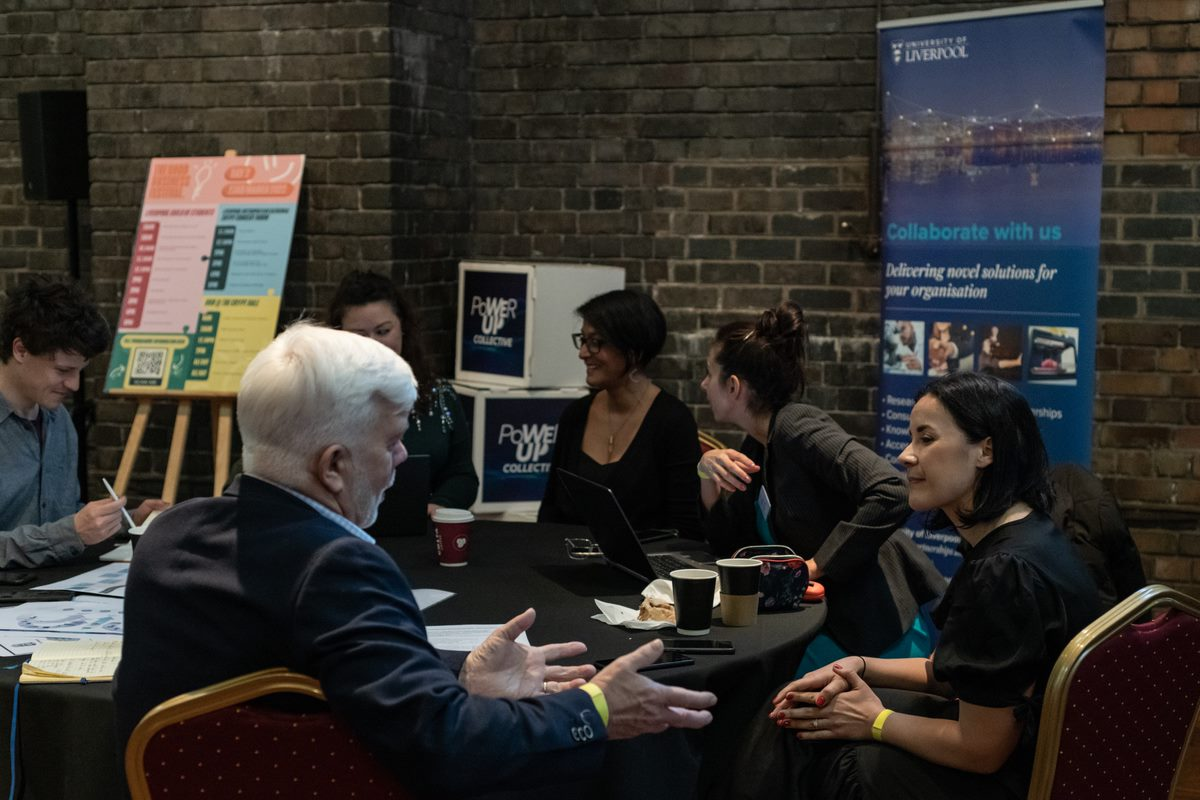
Figure 5: Low Carbon Eco-Innovatory event for local businesses
2. Spin-out creation
We achieved significant growth in our activity, creating 13 spin-out companies and increasing our IP income year-on-year from £2.6M in 2019/20 to £7.3M in 2021/22 [Source: HE-BCIS].
We have some exciting spin-outs in our portfolio, including:
In digital innovation, Robotiz3d, spun out in 2020 to develop an autonomous robotic platform for road repairs, and raised £1.25M of external investment in the first 18 months.
![Figure 6 shows an artist's impression of Robotiz3d's Autonomous Road Repair System [ARRES] driving along a main road on the University's campus.](../data-images/10006842_10.png)
Figure 6: An artist's impression of Robotiz3d's Autonomous Road Repair System model
In material and manufacturing innovation, our spin out Meta Additive Ltd was acquired by US company Desktop Metal for $15M in 2021. The sale has allowed them to further develop their technology portfolio, begin higher volume manufacturing and take their technology to a wider market.
3. Health and wellbeing
COVID-SMART Community Testing Pilot
This Liverpool-based pilot study was associated with a substantially reduced number of COVID-19 related hospital admissions, and delivered world-leading evidence on COVID-19 testing including reports to the Scientific Advisory Group on Emergencies [SAGE] in November 2020. The findings informed the subsequent national roll-out of open-access rapid antigen community testing across the UK, and helped Liverpool to re-open the first live music events held in the Northern Hemisphere.
4. Thought leadership and evidence-based policy making
Heseltine Institute for Public Policy, Practice and Place
The Heseltine Institute produced a series of briefing papers and reports for the LCR All-Party Parliamentary Group [LCR APPG] to help support inquiries and guide meetings. Examples include the final report of the ‘Build Back Better Inquiry’ in 2021, and a research paper on ‘A Prosperity Plan for Levelling Up the Liverpool City Region’ in response to the publication of the Government’s Levelling Up White Paper.
Researchers in the Liverpool Law School and Institute of Population Health, were amongst 40 leading academics involved in writing a major report which highlights the inequalities facing children in the North. The report, published in 2021, and produced by the Northern Health Science Alliance [NHSA] and N8 Research Partnership, was launched in Parliament and sets out a series of recommendations to tackle the widening gap between the North and the rest of England.
5. Culture and heritage
Researchers in the University’s Centre of Architecture and the Visual Arts [CAVA] are helping to transform urban spaces in the city into immersive narrative vehicles capable of attracting new and large audiences. CAVA collaborated with LCC to produce a pioneering mixed reality heritage experience, “If these walls could talk” which helped pave the way for a new public attraction in October 2021 – The St George’s Hall experience: The History Whisperer™ funded by the Department of Culture, Media & Sport.
6. Student enterprise
Helping our students to find employment within the LCR is one of the most important ways in which we support the region’s social and economic development. The latest Graduate Outcomes Survey results show that 28% of our graduates found employment in Merseyside and 40% in North West England. Enterprise programmes such as LCR Founders and Emerge provide students with a platform to create their own LCR based business. For example, Drill Surgeries, founded by award-winning entrepreneur Moises Barbera Ramos whilst studying at the University in 2019, is a vibrant start-up developing non-invasive medical devices to guide surgeons during trauma surgeries.
How we communicate our activities and impact
We communicate our local and regional contributions via annual reports, online case studies and videos, media engagement, opinion pieces and external publications. For example, the LCRCA’s Innovation Prospectus, launched in Westminster in April 2022, featured some of our flagship projects and facilities. It showcased how our research discoveries catalyse innovation and how we are working with the LCRCA to create ecosystems around our expertise where industry, academia and the public sector innovate together.
Public & Community Engagement
Summary of approach
Public and community engagement is at the heart of our activities, reflecting our desire to address societal challenges and maximise the benefit of our research. We engage with a vast range of communities, including:
Place-based, for example as part of our civic mission to support the local region or through our interactions globally with vulnerable communities.
With patient communities to inform the design, conduct and delivery of our health-related research.
With communities of interest such as young people or culture and the arts.
Public and community engagement is championed at all levels, supported by a strong infrastructure including our flagship Making an Impact skills development programme.
Aspect 1: Strategy
Strategy 2026 sets out the University’s strategic direction and our aim of building upon our connections and partnerships and strengths in research and impact activities to genuinely change lives for the better. To enable this strategy, we have developed an ambitious Knowledge Exchange plan which captures Public and Community Engagement as one of the priorities for investment and support. Specific objectives have been identified, including harnessing networks, building resources and embedding evaluation approaches.
The University has resourced this plan, allocating HEIF and institutional funds to appoint specialist expertise to grow the support and opportunities for PCE, as outlined in our HEIF Accountability Statement. To inform this work, we recently undertook the National Co-Ordinating Centre for Public Engagement’s EDGE Tool survey, to identify ways of enhancing our support for the work we do with the public to build and share knowledge. The survey highlighted the significant breadth of both PCE partners and activities that are embedded across university activity. The results will be crucial in helping us to map out, in an action plan, the next steps in our strategic approach to addressing internal support and development needs as well as addressing the needs of the public and community groups that we work with.
PCE is championed at the highest levels within the University with members of our Senior Leadership Team driving forward engagement across a number of areas [e.g. public engagement with research; cultural and civic engagement; global engagement; widening participation]. The Research and Impact Committee is responsible for overseeing the implementation of our strategy and also for developing and promoting policies to enhance our impact, KE and PCE activities. A Public Engagement Action Group has recently been established with the remit of developing and implementing our new public engagement action plan. This Group will report through to Research and Impact Strategy Committee and feed into Faculty committees.
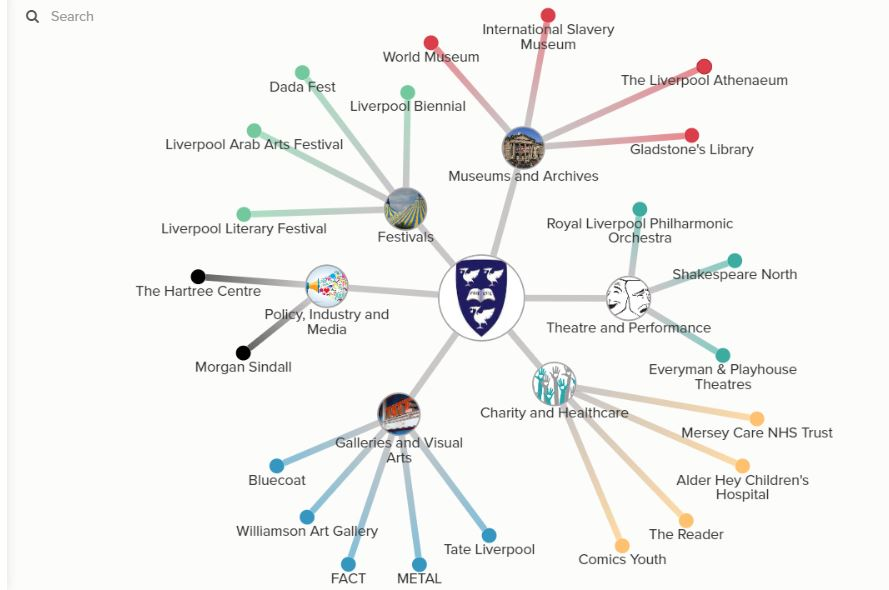
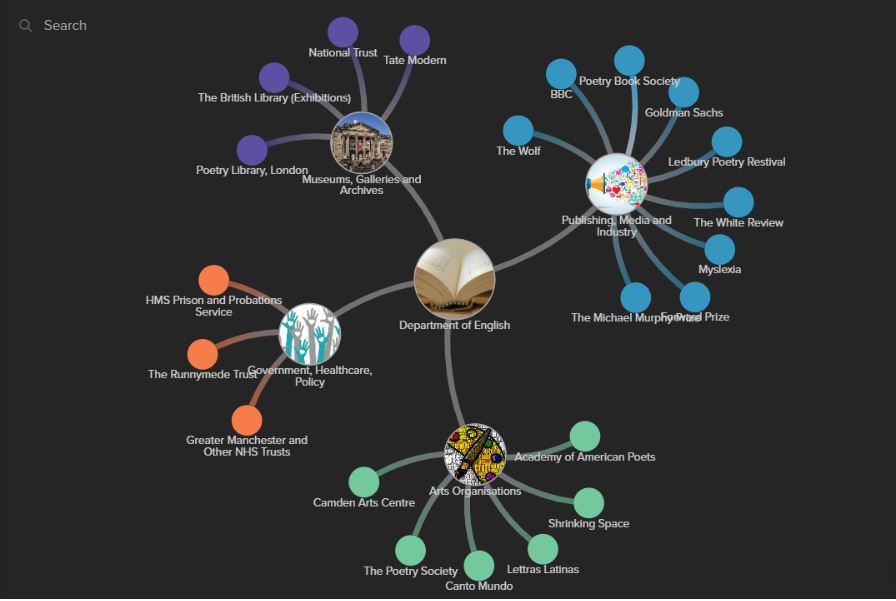 Partnerships
have proven vital in helping to maximise the reach and significance of
our research and engagement activity. We work closely with a wide range
of organisations and communities, both locally and globally, to
effectively engage and meet the particular needs of the intended
publics, including underrepresented and hard to reach groups and
vulnerable communities. An example of this is our work at the Centre for the Study of
International Slavery where a participatory approach is used
throughout each project.
Partnerships
have proven vital in helping to maximise the reach and significance of
our research and engagement activity. We work closely with a wide range
of organisations and communities, both locally and globally, to
effectively engage and meet the particular needs of the intended
publics, including underrepresented and hard to reach groups and
vulnerable communities. An example of this is our work at the Centre for the Study of
International Slavery where a participatory approach is used
throughout each project.
Figure 1: Our disciplines work with a wide range of regional, national and international partners in research, impact and engagement, exemplified here showing collaborators with the Department of English
Our PCE approach is also informed and underpinned by other cross-cutting strategies. The Heritage, Arts and Culture Committee lead a unified strategy to promote and facilitate engagement and partnership activity, particularly in the Liverpool City Region, through our museums, collections and estate.
We have a significant portfolio of research that tackles health inequalities and unmet needs locally and globally. We recognise the vital role of public involvement and engagement in meeting these challenges. We are the hosting member of the Applied Research Collaboration Northwest Coast [ARC NWC], partnering with many stakeholders to drive health inequality research. The ARC research themes have been co-produced with Patient and Public Involvement [PPI] and are supported by structures co-designed to facilitate involvement. PPI is embedded in all related projects from idea generation to implementation of findings.
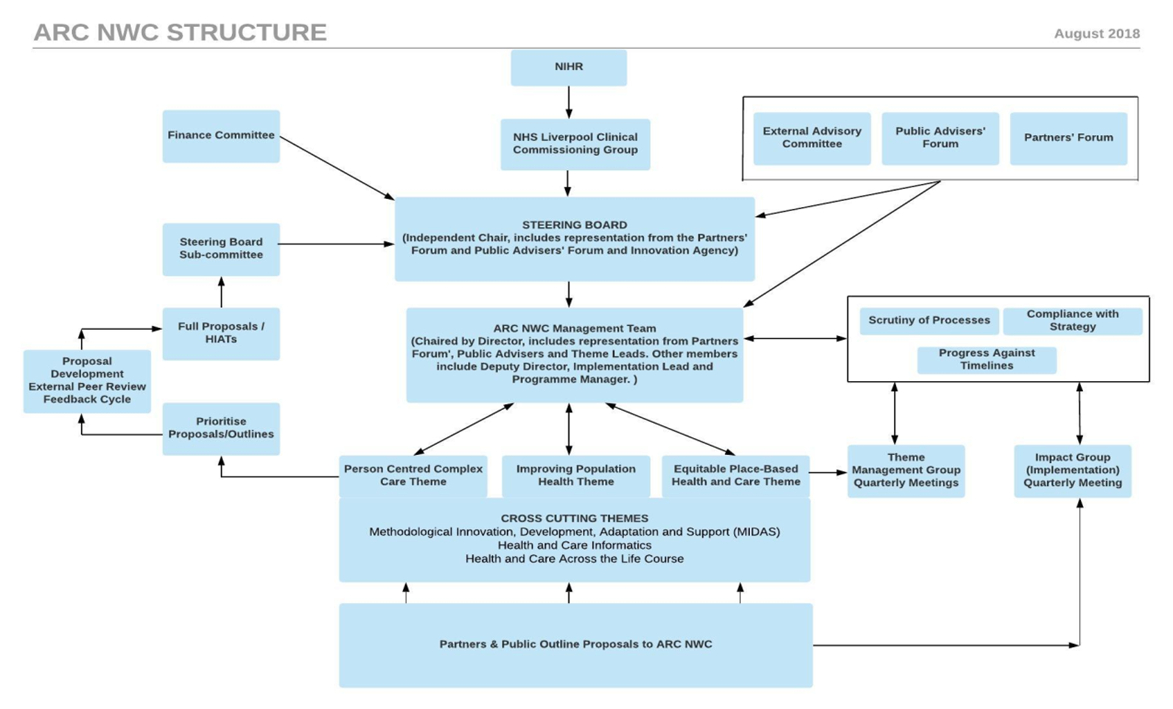
Figure 2: Operating Structure and Research Themes of the NIHR Applied Research Collaboration Northwest Coast
Aspect 2: Support
We have a number of mechanisms in place to support excellent engagement practice. The Academy leads an ambitious development programme for all staff. This includes our annual ‘Making an Impact’ programme. PCE is a core cluster within the programme framework, enabling participants to obtain a tailored PCE training experience. The latest programme provided 66 development sessions delivered by over 100 external and internal speakers, with over 1300 registrations. The Academy works closely with the BAME, disability and research staff networks to ensure support is accessible and meets the needs of the whole research community.
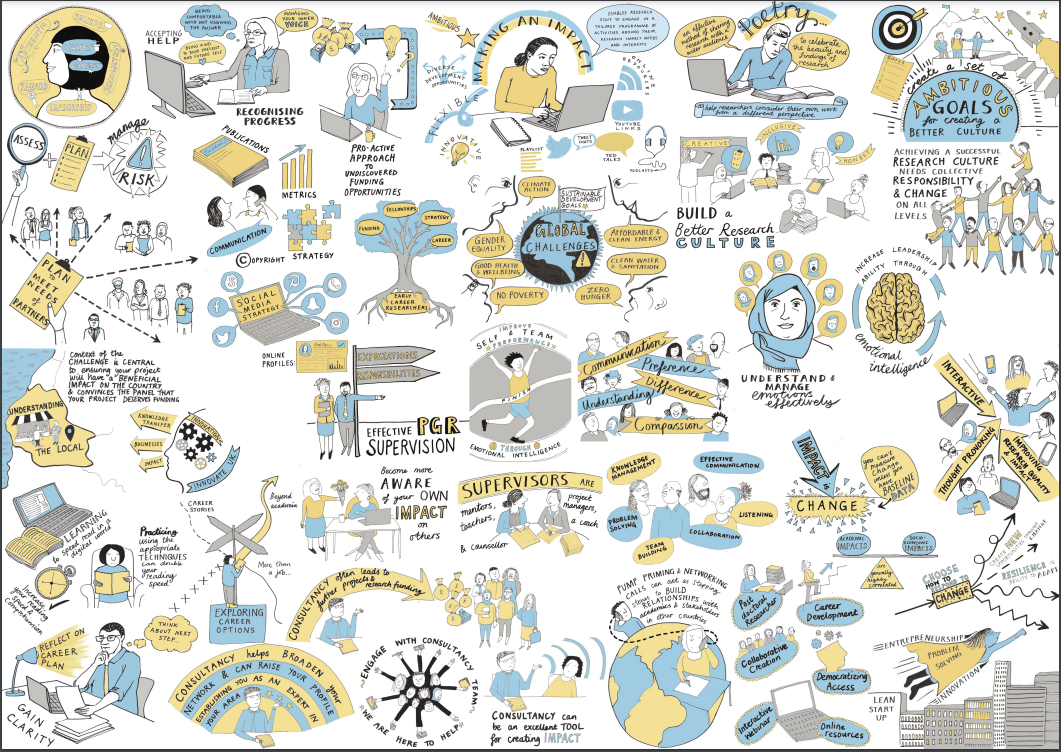
Figure 3: Visual Minutes from Making an Impact Series 2020
Engage@Liverpool is a cross-faculty initiative promoting excellence and innovation in research methodology including a distinctive strand of engagement with people through research. This is delivered through an annual programme of masterclasses and workshops.
Alongside our annual programme of activities, we have a number of active groups including Public Engagement Network, Events Organiser Network and the Marketing and Communications Community of Practice that have a focus to bring together and support many professional service staff who have a responsibility to lead or enable PCE. They play a vital function in increasing awareness and sharing best practice across central services and academic faculties.
We have embedded specialist support for PCE within our structures, including dedicated resource within our Research, Partnerships and Innovation Directorate and a range of support available within each of the faculties. This includes academic leads and champions for public engagement and impact; public engagement and research and impact officers; outreach leads and officers; and academic impact fellows. An example of the structure within one of the faculties is provided. These structures have helped increase the visibility and raised the profile of PCE across the faculties.
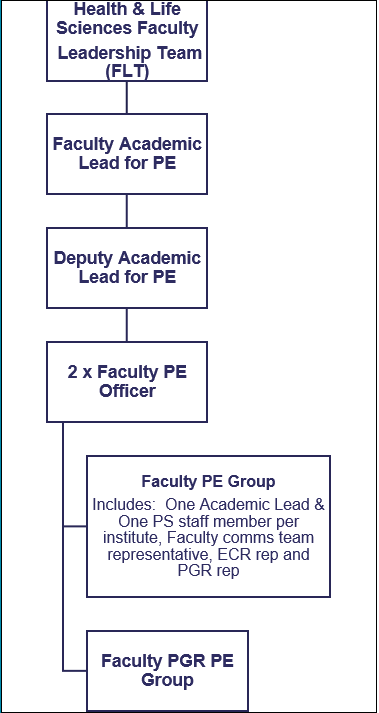
2022 marked the 11th year of the Outstanding Contribution to Public/Civic Engagement category in the annual staff awards, celebrating teams and individuals. Projects are celebrated further at faculty level awards.
We have broadened academic leave policy to encompass impact and engagement activity to recognise the importance and requirements of PCE. There are a number of internal funding routes for purposeful PCE that meets wider institutional objectives. Grants are made available from HEIF, Impact Accelerator Accounts, Institutional and Quality-Research funds:
Participatory Research Fund: £3,000 - £10,000 to support participatory or co-produced research.
Methodological Innovation and Development Award: £1,500 includes support for Practice or impact-focused events seeking to engage people, communities, and organisations.
Public Policy Fund: £10,000 - £50,000 to engage stakeholders and contribute to evidence-based policy interventions.
Alumni and Friends Fund grant: £5,000 to enhance the student experience, including by enabling students to engage with the local community.
Equality Kick Start Fund: £500 to enhance or develop EDI approaches including outreach, WP, or PE activities.
Partnership Innovation Fund: £10,000 - £50,000 to support non-HEI collaboration to address a significant external challenge.
Knowledge Exchange Theme Development Fund: £10,000 - £50,000 for strategic partnership development within areas of research excellence.
Figure 4: Health and Life Sciences PCE Support Structure
Aspect 3: Activity
Our recent NCCPE EDGE survey highlighted the breadth of activity, approaches, and stakeholder groups across our PCE activity. The following projects demonstrate our approach and commitment to change lives for the better by improving services in the local region; delivering better health outcomes; and empowering vulnerable communities across the globe:
The Planning Research Institute has worked on a number of initiatives with local authorities, charities and community-based housing associations to address housing challenges, support government policy and stimulate regeneration. A partnership project with Cobalt Housing combined community engagement with data analysis to inform the construction of 1000 new homes to meet the needs of those experiencing deprivation in older age.
GenerationR, the Liverpool Young Person’s Advisory Group informs the design and conduct of child health research. The university has a commitment to a child rights-based approach for the design and conduct of paediatric research. The team also founded the European Young Person’s Advisory Group network. It provides a centralised point of contact and a platform on which investigators and industry can access the opinions of young people in a manner that is regulated with standard contracts, confidentiality agreements, and standardised payments for services.
The Centre for the Study of International Slavery, run in collaboration with Liverpool’s International Slavery Museum, seeks to address the UN’s Sustainable Development Goal to eradicate modern slavery. Their approach builds resilience in communities through education, arts-based methods, performance and the collection of voices and testimony from vulnerable communities, fully engaging them with the research and its design. Their outputs are intended to provide a pathway and a blueprint to address Community-Led Strategies for Creative and Heritage-Based Interventions in Sub-Saharan Africa.
Interchange, based in the School of Law and Social Justice, links voluntary and community organisations with students for research or work-based learning opportunities enabling beneficial shared knowledge generation as well providing valuable engagement opportunities to undergraduate students.
The Heseltine Institute led a City Conversation Project in partnership with Liverpool City Council and MyClubmoor Partnership Board, a Big Local community development scheme to develop a participatory approach to community engagement to better understand local issues and contribute to the design of more effective public services.
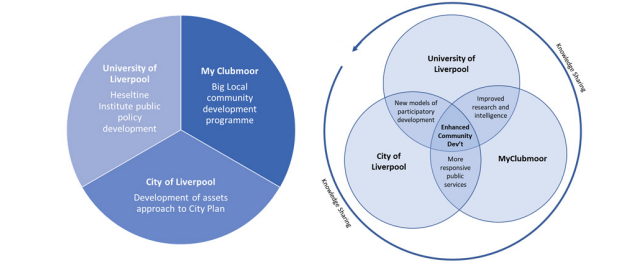
Figure 5: The stakeholders and their intersecting interests in The City Conversation Project
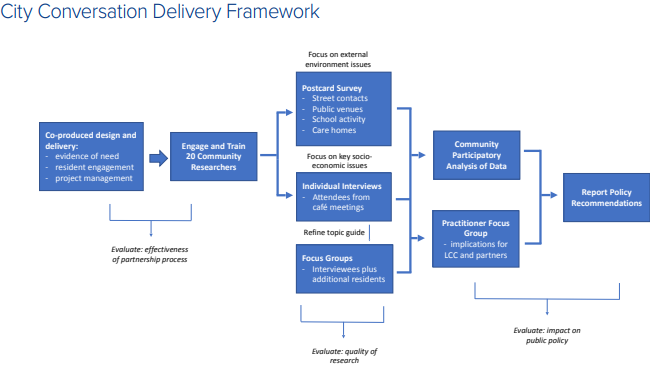
Figure 6: The City Conversation Delivery Framework with Community Researchers
The University is also committed to contributing to the heritage, arts, and cultural assets of the region. The Victoria Gallery & Museum, Garstang Museum of Archaeology and the Ness Botanical Gardens are all public venues with varied regular programming to connect the University with a variety of audience groups.
In March 2022, this was bolstered with the opening of our new multipurpose facility and performance venue, the Yoko Ono Lennon Centre. The centre houses a 400-seat Tung Auditorium using an audience-led programming approach to engage existing and new music audiences. The Tung Auditorium aims to champion equality, diversity and inclusion in everything they do, both on and offstage, and are proud signatories of the Keychange Pledge for gender balance. The auditorium also hosts a vital Affiliate Organisations programme to support and engage community music organisations in Merseyside.
Aspect 4: Enhancing practice
One of the key objectives in our KE plan is to embed effective evaluation of PCE activity across the institution. Full evaluation reports are a condition of internal awards to track initial objectives and ensure individual and institutional learning. To support this we have established a programme of regular dedicated training for staff and PGR students to promote evaluation and reflection on practice. Furthermore, we have targeted additional support to existing engaged research projects to enable in depth evaluation and impact tracking. This has included:
Exploration of societal impact of a project to explore cultural heritage of Syrians in the UK through recorded interviews.
A dedicated research assistant to devise an evaluation and impact plan for Poets in Vogue – an exhibition and events programme at the National Poetry Library.
Our major programmes of activity all have clear mechanisms in place for monitoring, evaluation and sharing of outcomes. For example, our Heritage, Arts and Culture Strategy is supported by an operating plan and performance indicator framework which seeks to monitor and strategically underpin the activity of the University's museums and galleries as well as the many cultural engagement projects and events with partners.
The Heseltine Institute is the university’s public facing policy institute. Whilst delivering its own portfolio of co-produced community-based research, it acts as a point of focus for thought leadership and reflection on how researchers work with partners and communities to embed research.
One of our Key Performance Indicators monitors the levels and quality of our research impact. The voice of users, stakeholders, communities and the public are viewed as key to this process to ensure our activities are as meaningful as possible, with best practice routinely shared to inform future activities. As well as supporting future planning, this exercise builds expertise in evaluation of impact and engagement activities and identifies content to showcase as part of broader communication and recognition processes.
Liverpool Elements is an online tool to help researchers manage information about their research and impact activity. It collects data from multiple sources and presents it within one single web-based interface. It is used by researchers to reflect, record and showcase their PCE activity and impact, alongside their other professional activity.
Aspect 5: Building on success
In 2021/22 we embarked upon a period of significant scrutiny and reflection as we sought to refresh our approach to PCE as part of the wider KE plan. We undertook the NCCPE EDGE Tool survey and consultation process to assess the effectiveness of our strategy and the practical support currently offered and to help identify areas for development, investment, and change. The outcomes of the survey along with exploration of key issues with focus groups are being used to inform the next PE Strategic Action Plan.
During the same time period, we also reflected on our research environment through the Research in an Inclusive and Sustainable Environment [RISE] project. This was a collective conversation exercise initially devised in response to the COVID-19 pandemic to understand the differentiated impacts on our researchers. More recently, the project focussed on enhancing the research environment considering, ‘What we care about’ and ‘How we measure and recognise those priorities’. This has resulted in the development of a new research and impact contributions framework including an increased emphasis on EDI contributions and KE, with PCE activity specifically incorporated to help strengthen our recognition processes. This will be a vital strategic approach to embedding an engaged research culture across the institution.
Evaluation of our Making an Impact programme has been crucial in informing our future approach to staff development and support. The 2022 evaluation highlighted an extremely positive response from attendees with over 82% finding the sessions useful to their future needs. The qualitative feedback reported that participants particularly benefitted from insights into how to create meaningful collaborations and build and sustain networks.
The Civic Data Cooperative, hosted by the University and launched in 2020, is a joint initiative with the Liverpool City Region Combined Authority to connect organisations and citizens in the region to appropriate data to solve big problems. PCE is at the core of this exciting development and the team has begun work on a carefully planned PCE process. As part of this, the CDC commissioned Involve to help design and implement a strategy, informing their participative approach of Public Data for Public Good.
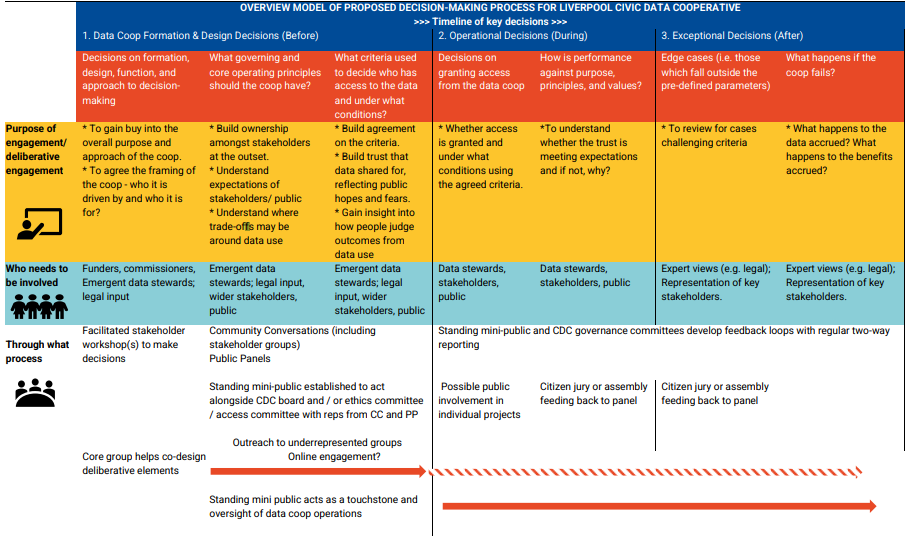
Figure 7: The Model of Proposed Decision Making for the Liverpool Civic Data Cooperative to support an informed engaged process at every stage
In 2022, the University commissioned a review of Patient and Public Involvement [PPI] activity. Input was gathered through surveys, discussions with key senior colleagues and a workshop with PPI practitioners and patient representatives. The review was specifically designed to inform the future creation of a designated PPI infrastructure to further support the shared Universities UK commitment to PPI in health and social care research and expand on the successes from NIHR collaboration projects.
Note You are currently viewing the latest version of this narrative statement. View the previous version as published in previous iterations of the KEF (KEF1 and KEF2)